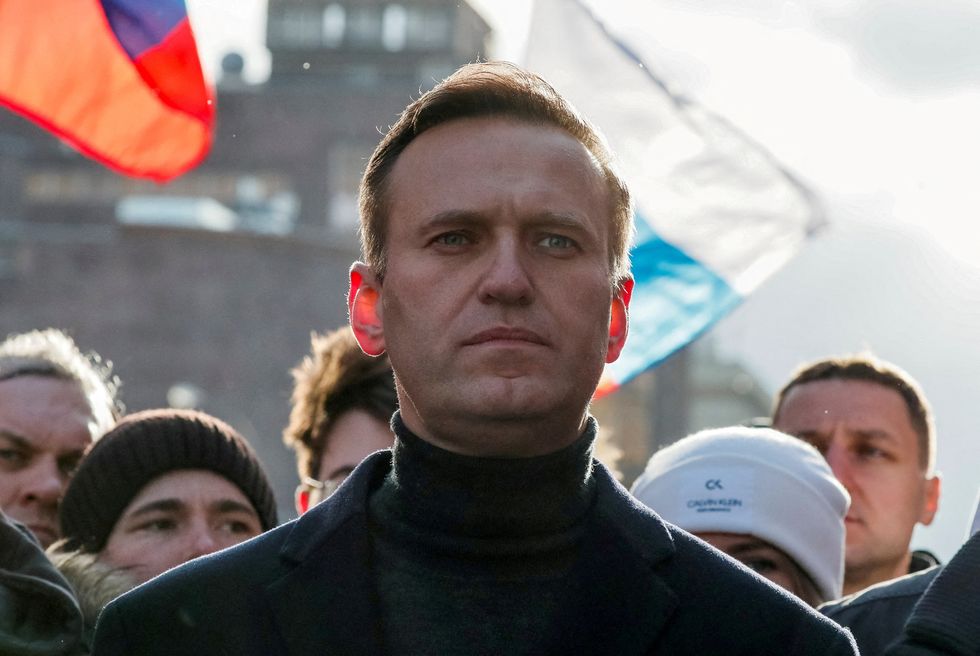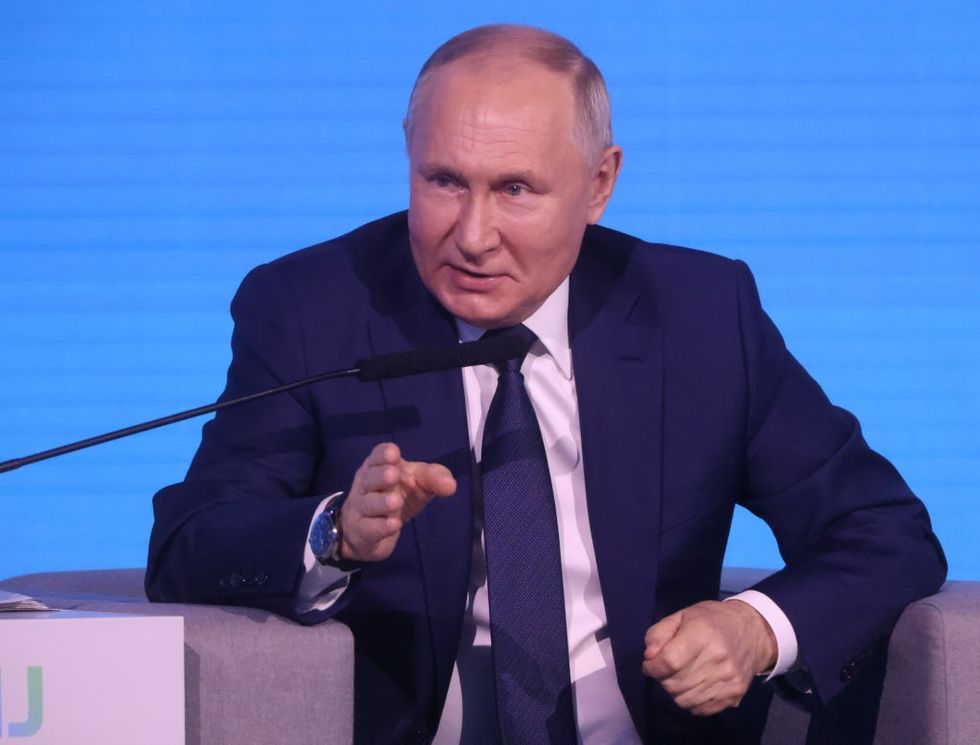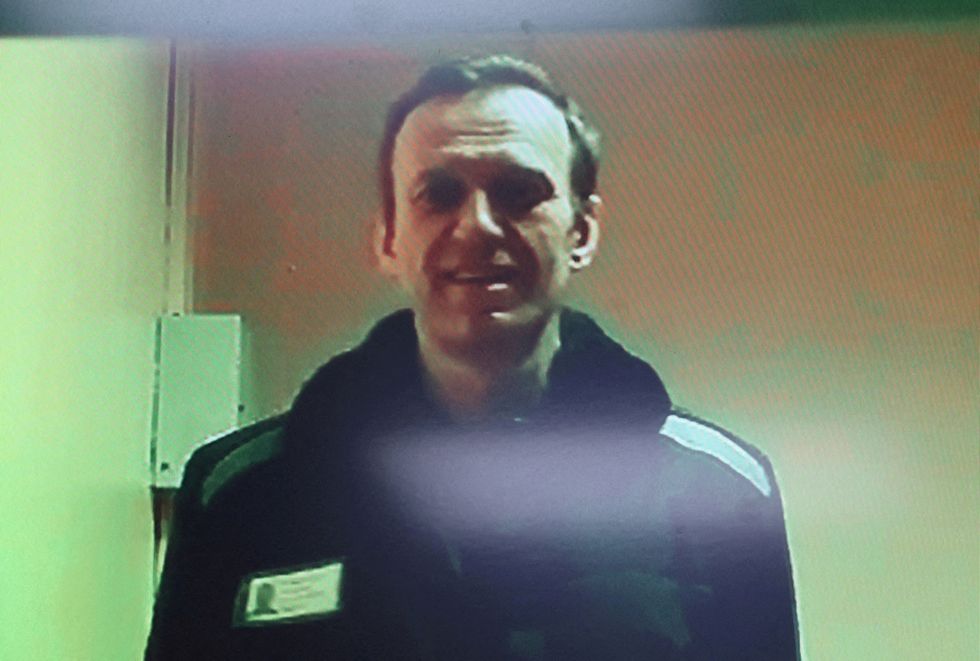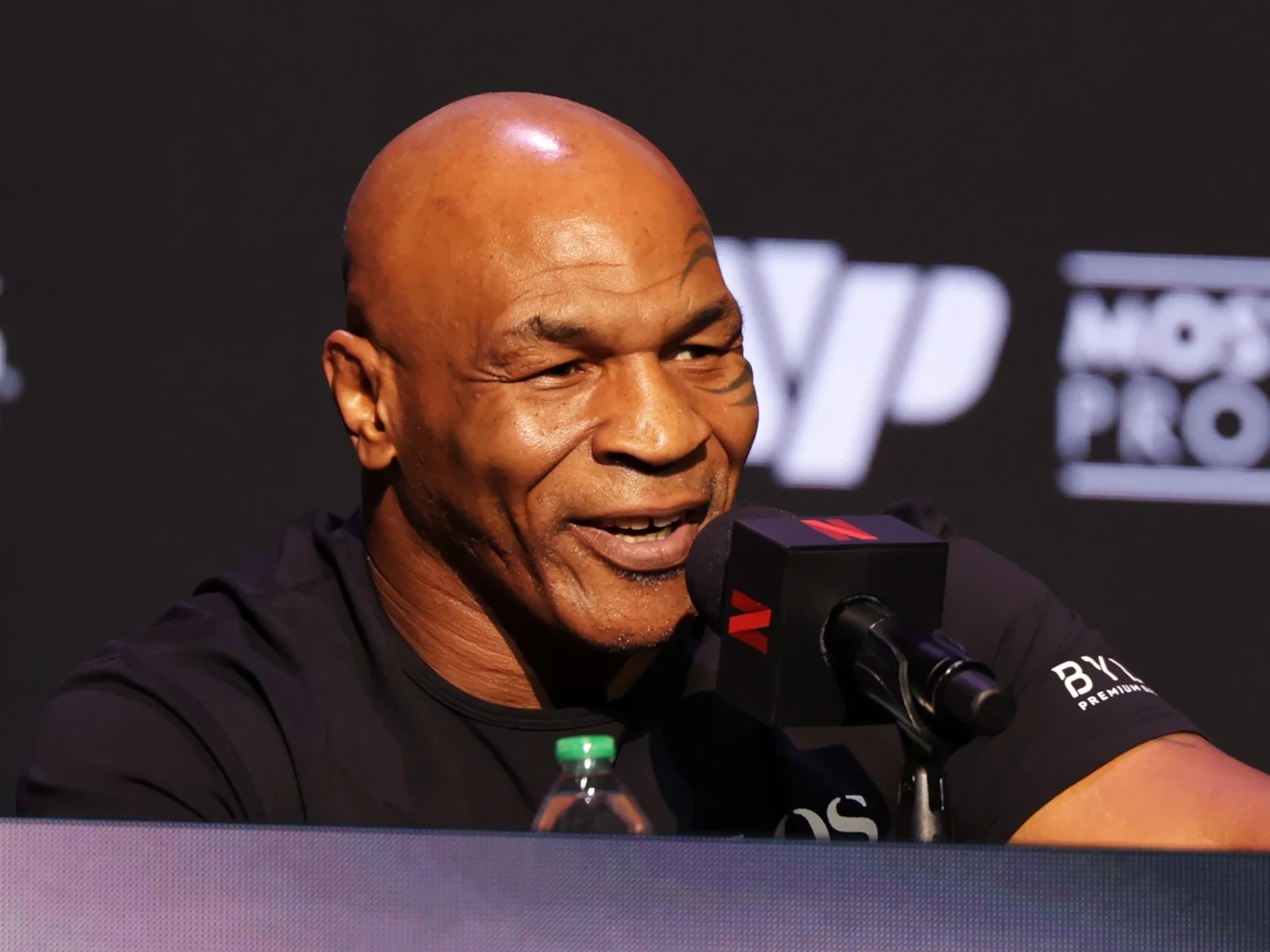Putin rival and Russian opposition leader Alexei Navalny DEAD says prison service
Navalny's death a 'huge tragedy' for the people of Russia, Rishi Sunak said
Don't Miss
Most Read
Trending on GB News
Alexei Navalny, the jailed Russian opposition leader, has died at 47, the prison service of the Yamalo-Nenets region said today.
Navalny had been a fierce critic of President Vladimir Putin, and was jailed in 2021 following a string of convictions widely considered to have been politically motivated.
He had previously led the opposition party Russia in the Future, and founded the Anti-Corruption Foundation in protest against corruption in Putin's government.
Kremlin spokesperson Dmitry Peskov said Russia's penitentiary service was “making all checks” regarding Navalny's death, but that he had no information about the matter.

Alexei Navalny has died at 47, Russian prison sources say
ReutersVladimir Putin has been informed of his death, Russian state-run media site Tass reported.
Navalny's chief of staff, Leonid Volkov, said he neither had confirmation of his death nor any way to prove it wasn't true.
The full statement from the Office of the Federal Penitentiary Service of Russia read: “On February 16, 2024, in correctional colony No 3, convict A A Navalny felt unwell after a walk, almost immediately losing consciousness.”
“The institution's medical workers immediately arrived, and an emergency medical team was called.
LATEST DEVELOPMENTS:
- Russian prison imposes bizarre pro-Putin propaganda routine every morning
- Putin's rival being ‘slowly poisoned’ in painful assassination as he loses 18lbs in days and suffers seizures
- Alexey Navalny calls for Russians to rise up against 'insane czar' Vladimir Putin with organised demonstrations every weekend

Vladimir Putin has been informed of his death state-run media in Russia said
Getty“All necessary resuscitation measures were carried out, but they did not yield positive results... Emergency medical doctors confirmed the death of the convict.”
Navalny had not previously complained about health problems while in prison, Tass reported.
Volkov described the statement as a “confession”, and said Navalny’s lawyer was travelling to Kharp, home of the penal colony holding the former opposition leader.
Russia's investigative committee said it was opening a case into the death.
A statement by the Kremlin-run committee said: “The Investigative Department of the Investigative Committee of Russia... has organised a procedural check into the death of A A Navalny in correctional colony No 3.
“In accordance with the procedure established by law, a set of investigative and operational measures are carried out aimed at establishing all the circumstances of the incident.”
Prime Minister Rishi Sunak said on social media: “This is terrible news. As the fiercest advocate for Russian democracy, Alexei Navalny demonstrated incredible courage throughout his life.
“My thoughts are with his wife and the people of Russia, for whom this is a huge tragedy.”
While Ukrainian President Volodymyr Zelensky said Navalny was “obviously killed by Putin”.
Nato Secretary-General Jens Stoltenberg said he was “deeply saddened and disturbed” by the reports.
He said: “We need to establish all the facts, and Russia needs to answer all the serious questions about the circumstances of his death.”
German Chancellor Olaf Scholz said he was “very sad” about reports of Navalny’s death, and said it was a “terrible” sign of how Russia as a country had changed in recent years.

Navalny had been imprisoned around 60km (40 miles) north of the Arctic Circle
ReutersBut Russian Foreign Ministry spokeswoman Maria Zakharova said ‘Western accusations’ about the death of jailed opposition leader Alexei Navalny were “self-revealing”.
In a statement on Telegram, Zakharova said that forensic results on Navalny's death were still unavailable but that the West had already reached its own conclusions.
In 2020, Navalny was hospitalised after being poisoned with Novichok, the same nerve agent poison used in the 2018 Salisbury attacks which saw the attempted murders of Sergei and Yulia Skripal.
At the time, Navalny accused Putin of arranging his poisoning, and a later investigation implicated agents from Russia's security service, the FSB.









